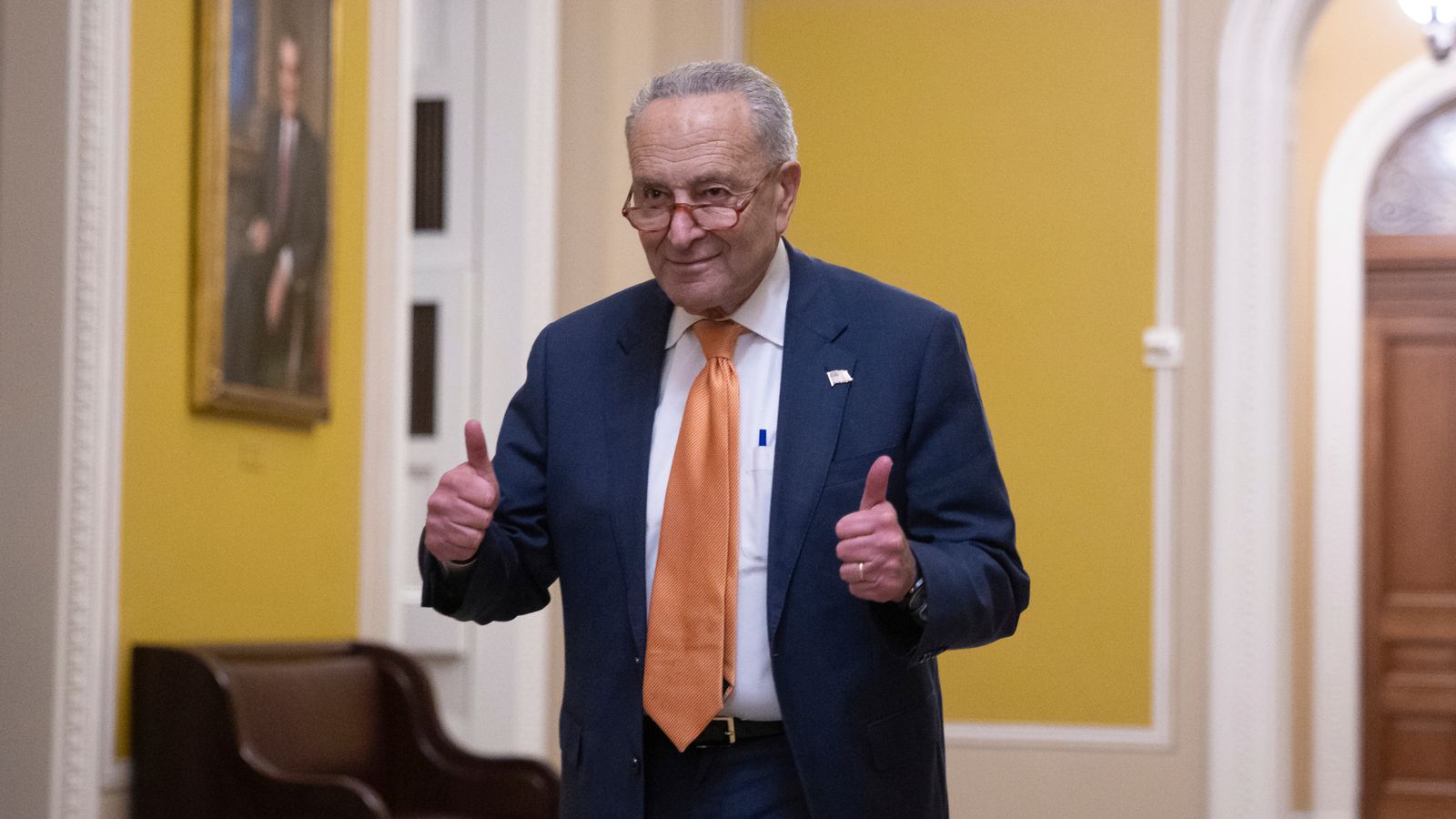Analysis: A sticking plaster, but lots unresolved
It was brinkmanship, about as close to the brink as it gets.
US networks had been running “countdown clocks” to government shutdown and they showed less than nine hours when the breakthrough vote happened in the House.
It was the magic key to avoiding a shutdown and everything that would have entailed – the closures, the workers unpaid, the multibillion-dollar hit to the economy and the rest.
It came down to last-minute political gymnastics. Kevin McCarthy, Republican Speaker of the House of Representatives, had spent weeks trying, and failing, to corral right-wing members of his party behind a preferred funding plan.
Their objections stood in his way and they didn’t budge. It was a measure of the influence wielded by the likes of Matt Gaetz and Marjorie Taylor-Greene, once on the faraway fringe, but now key players in the party.
At the last-minute, McCarthy’s 45-day stopgap proposal to avoid a shutdown was carried forward only when Democrats weighed in behind it.
It may yet come back to bite Mr McCarthy, one of America’s most prominent political figures.
His right-wing party critics had threatened to oust him if he counted on Democrat votes.
It’s one loose end among many – not least the issue of funding for Ukraine.
The bill that has averted the shutdown doesn’t include $6bn (£4.9bn) in Ukrainian aid – a concession demanded by many Republicans in the House of Representatives.
How that squares with a US government commitment to aiding the war effort will be central to the discussions in the 45 days that this bill buys.
Democrats who nodded it through saw the danger in being seen to deprioritise US domestic interests amidst the immediate threat of a shutdown.
Having pulled back from the brink, they will wrestle with the danger they see in deprioritising Ukraine and its war effort.
This story originally appeared on Skynews

